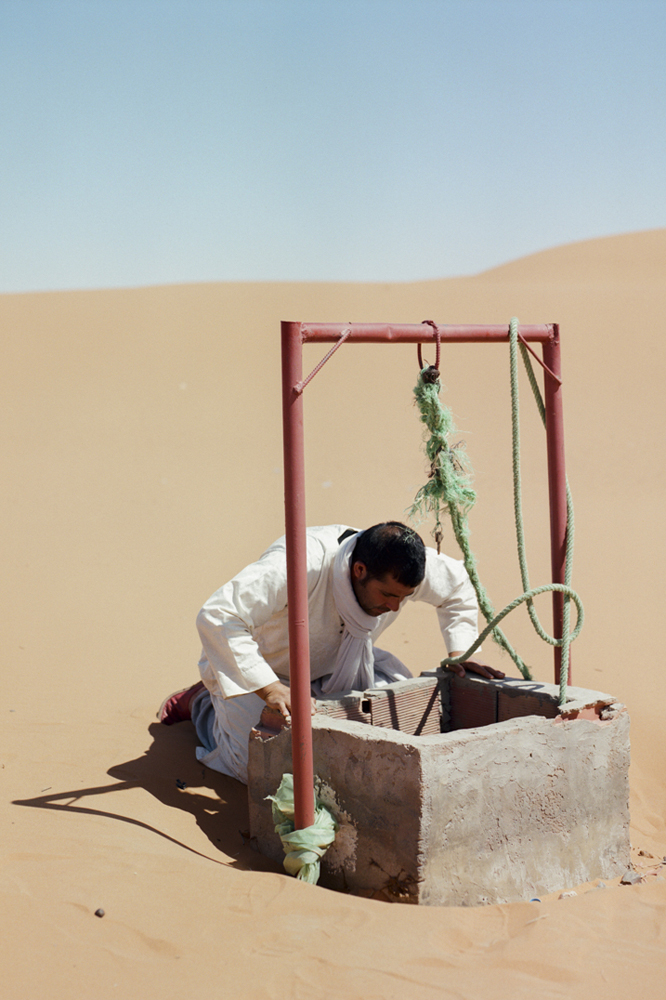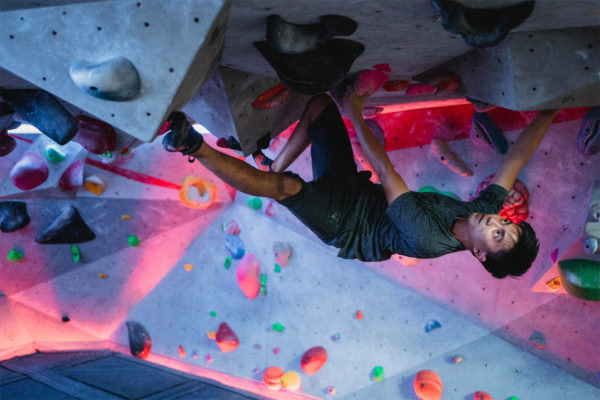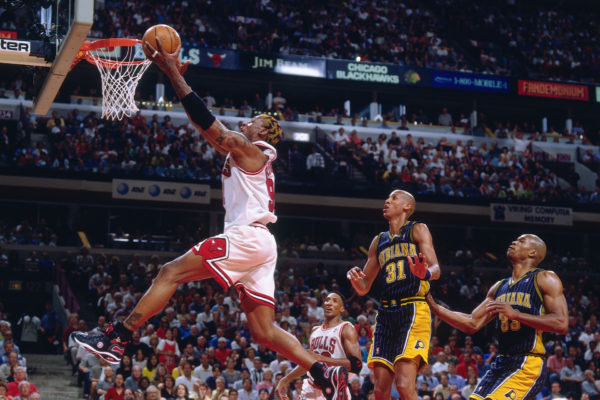Pro Climber Shauna Coxsey On Her Favourite Climbs And A Few Olympic Predictions
By
1 year ago
On retirement from competition climbing and scaling the wall with her daughter
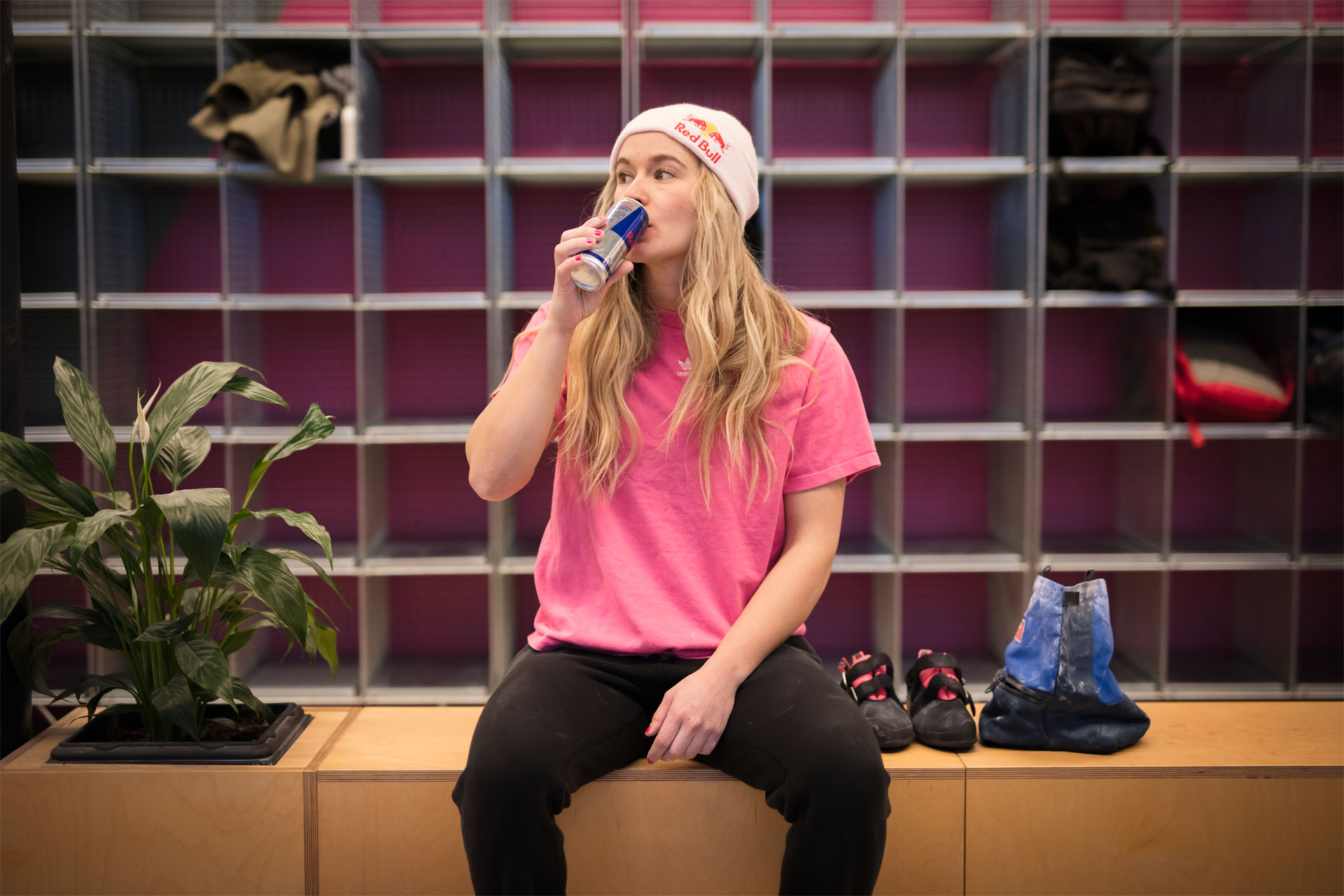
Shauna Coxsey is Britain’s most accomplished female climber – but this year she’ll be watching the Olympics, rather than competing in them (as she did last time). The Red Bull athlete speaks to us about retiring from competitions, where she’s itching to climb next, and why female climbers face different challenges than they did when she started out.
Shauna Coxsey On Pro Climbing, Retirement At 30 Years Old, And Her Olympic Predictions
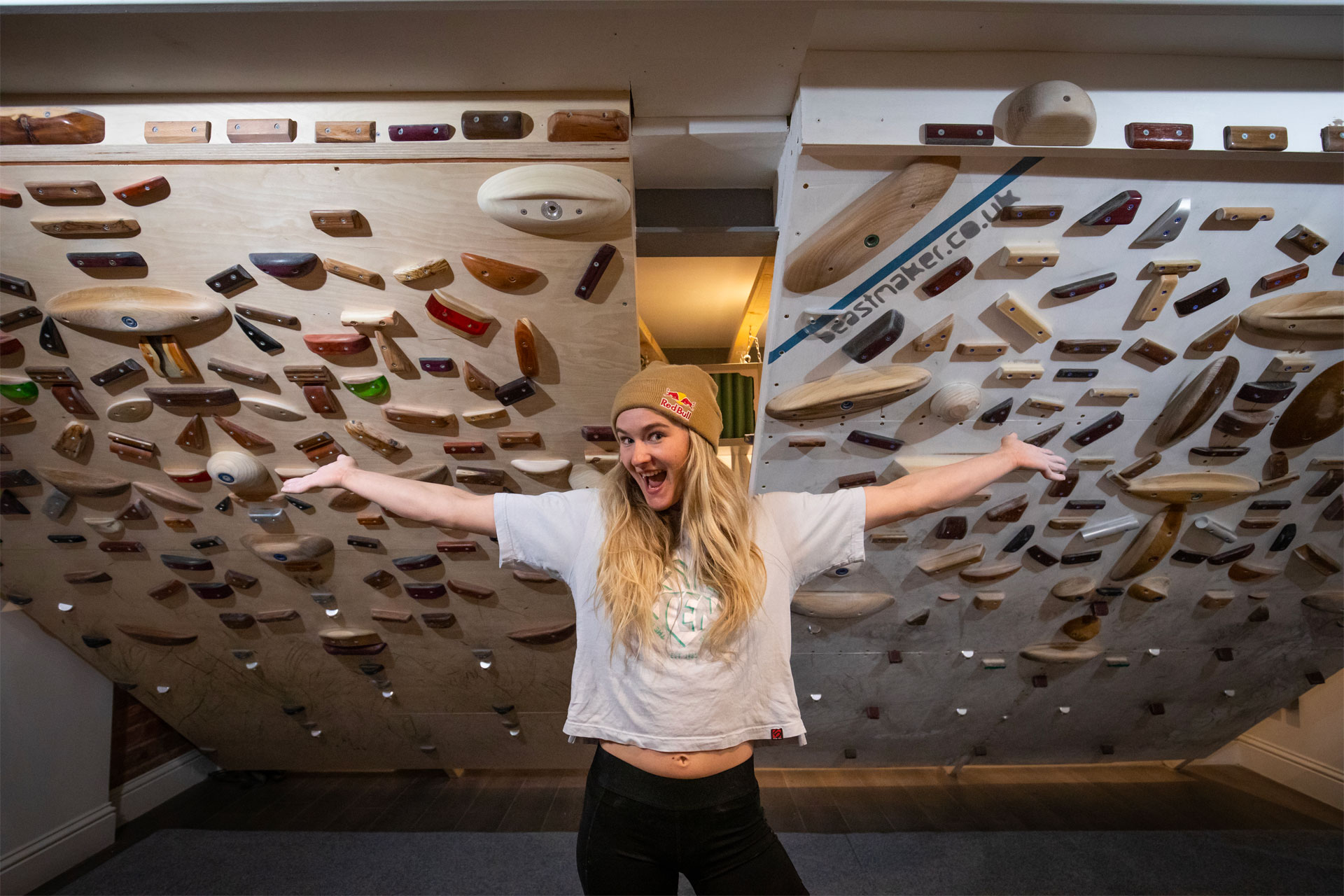
© Red Bull – Content Pool
Set the scene – and take us back to the beginning. When did you know you were going to be a professional climber?
So at 18, I’d applied for university but didn’t really want to go. I deferred everything just for a year, which is when I decided to give professional climbing a go. I started to build a coaching team, started working with a nutritionist, and ramped up my training – finding myself as an athlete, not just a climber.
Did you have a job through this, or a backup?
I did. I worked at the Climbing Hangar, Liverpool, where I led women’s coaching classes and was a route setter. But I didn’t do that for too long before I went full time as a climber.
And now… You’re retired from comps, instead focusing on your outdoor climbs. What’s the difference in how you approach climbing and training?
It’s a monumental difference, like two different sports. Climbing is such a unique sport in competitions, you have to be ready for whatever is put in front of you. At the Olympics this year, lead-climbing and bouldering will be the only two sports where the athletes are competing on something they didn’t get to practise. It means training has to cover every single possible avenue.
With rock climbing, you can specifically train a particular climb or project. And you can wait: until the weather is better, you feel better. You don’t have to perform at a specific, given moment.
Do you feel your relationship with climbing has changed over the last few years?
I had a huge shift going from Tokyo, competing in the games, to then taking a break – and having a baby! After Tokyo, I got pregnant quite quickly afterwards. I started ramping up after having Frankie, my daughter, but then six months after having her, I had double knee surgery. Adding that recovery onto everything made it all a little bit more challenging.
But now it feels like I’m on the precipice of everything finally coming together and being able to pursue these climbing goals that I’ve held for my entire career. I did always know I’d shift focus at some point, and it now really feels like this is the moment I get to do that.
As your career shifts, I notice you’ve stayed working with Red Bull. What does that mean to you?
Yeah, I’ve been with Red Bull for a really long time; they’ve been a privilege to work with, and so supportive of me as an individual. Through my competition career, into pregnancy and motherhood, and now as I give rock climbing my all – climbing outdoors more – I feel really lucky to be connected with Red Bull. I get to join this network of athletes who’ve had similar journeys. To be part of a community of really like minded people feels it’s so rare to have, especially at the elite end of action sports, you know?
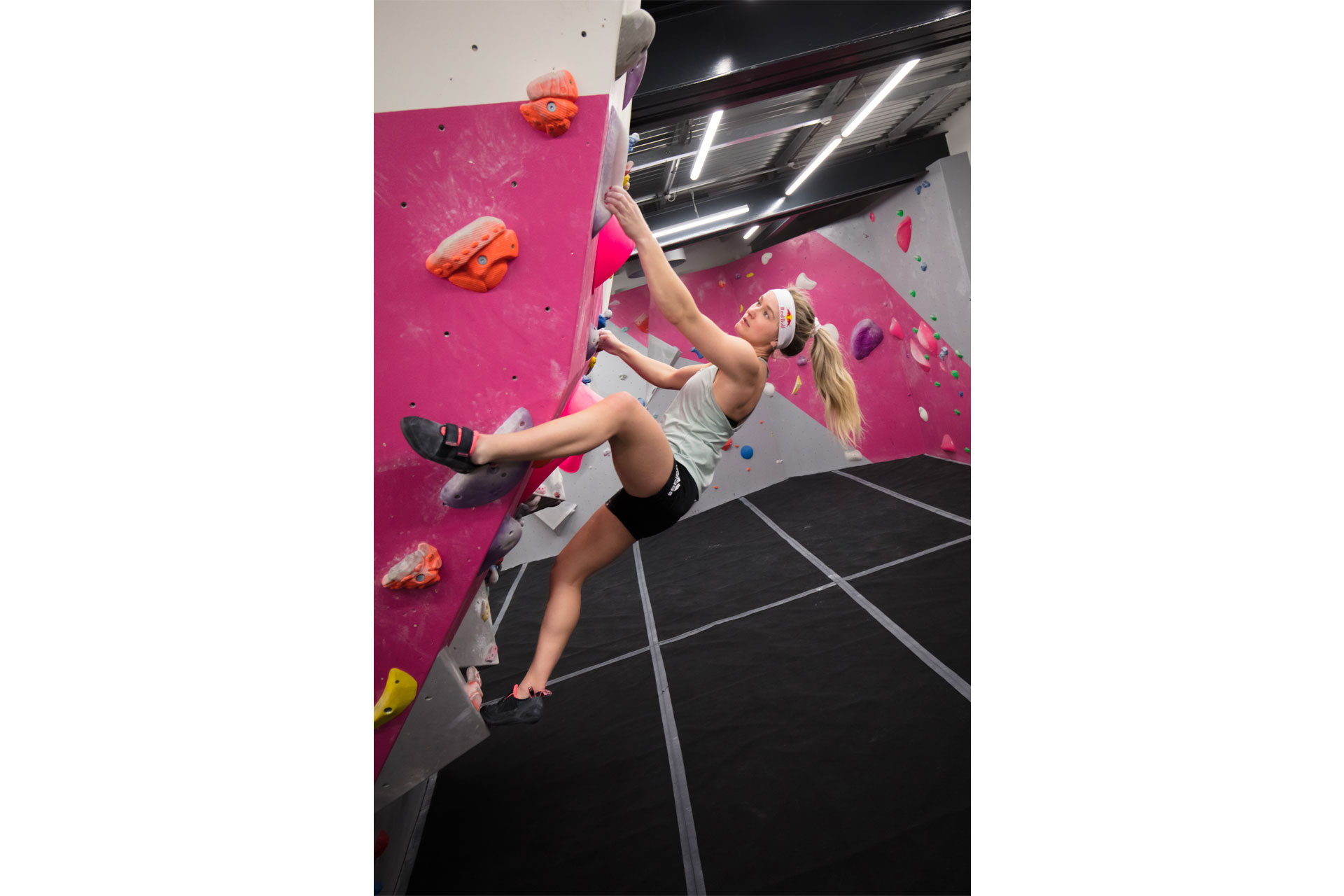
© Red Bull – Content Pool
What sits behind your climbing philosophy?
I always try to keep it fun.
Of course, it’s not always fun. Being motivated is easy – being committed is hard. And being committed is where you find the difference between elite performance and participation. For me, there are times where I need to be committed, and just push through sessions. But generally in climbing for me to get the best out of it, I need to be happy, and I need to be having a good time. I need to have a good crew around me.
A good attitude. Talk to me a bit about climbing’s ‘moment’ – it seems to be everywhere since 2020. Was that the moment that fixed its course into the spotlight?
I think our sport was definitely on an upward trajectory already, but when the Olympic announcement came, it snowballed. The exponential growth we’ve seen with the sport was more than I think anyone expected. So the Olympics felt like a catalyst in some ways; but maybe it was part of a development that was already coming.
Have you felt more in the public eye as the sport grows?
I feel lucky that my growth as an athlete came at the same time the sport was growing; I was never thrust into any limelight, because there was no limelight to be thrust into when I started. No one cared about climbing. In every interview I did, I’d have to explain what bouldering was, how it all worked. It’s so bizarre not to have to do that now. I feel for younger athletes coming through, it’s not an easy position to be in the public eye.
Do you think the sport is changing?
I think with any of these sorts of developments, there’ll be inevitable change with it. I hope that there’s enough work being done to ensure that that change is positive; that’s always been my goal, to use my experience to help that.
On the topic of change, I wondered what you make of the ‘tech bro’ rep of climbing… Only 24.6 percent of climbers worldwide are women, how do we get more women into the sport?
Ha, I’d never heard the term ‘tech bro’ within climbing, which is kind of funny.
I think… So, for me, the sport has for so long been a niche, unusual thing to do. Now climbing is a cool thing to do, and people want to do it because it’s cool. It still blows my mind; I spent over a decade doing a sport that everyone thought was a bit weird…
But yeah, now it has ideas attached to it. Probably different places in the country and world have different images of what a climber is. And I think those stereotypes might be starting to break down, which is such a good thing.
Walking into a climbing wall now, there’ll be so many people using it for different reasons: to stay fit; to socialise; to have the best possible climb. And some people might be there for the very first time – I love that we’re all in the same space. I could take a beginner with me, and we’d be climbing the very same wall. Although maybe different routes. So I think the more we can move away from those stereotypes, the better.
I’ve run women’s climbing events for over 13 years, and I’ve noticed the demand for that event has changed. It originally began as an attempt to break down specific gendered barriers within the sport; it’s now more a celebration of climbing as much as place to discuss barriers. And in terms of the barriers, we’re seeing less barriers for women coming into the sport, but maybe barriers to progressing within the sport. I think that’s an important distinction.
There’s lots of work to be done within our sport to make it more inclusive and accessible and the development so far has been positive. But I don’t think that means we can stop. I think there’s probably more work to do than ever.
Talk to me about some efforts to diversify these spaces?
Kai Lightner is a great example, he’s doing a lot of work in climbing for change, introducing the sport to loads of new people and making it more inclusive for those already in it. Another US example is Kevin Jorgeson who [via his non-profit 1Climb] got the funding for loads of walls to be building across the states where they might not normally be built.
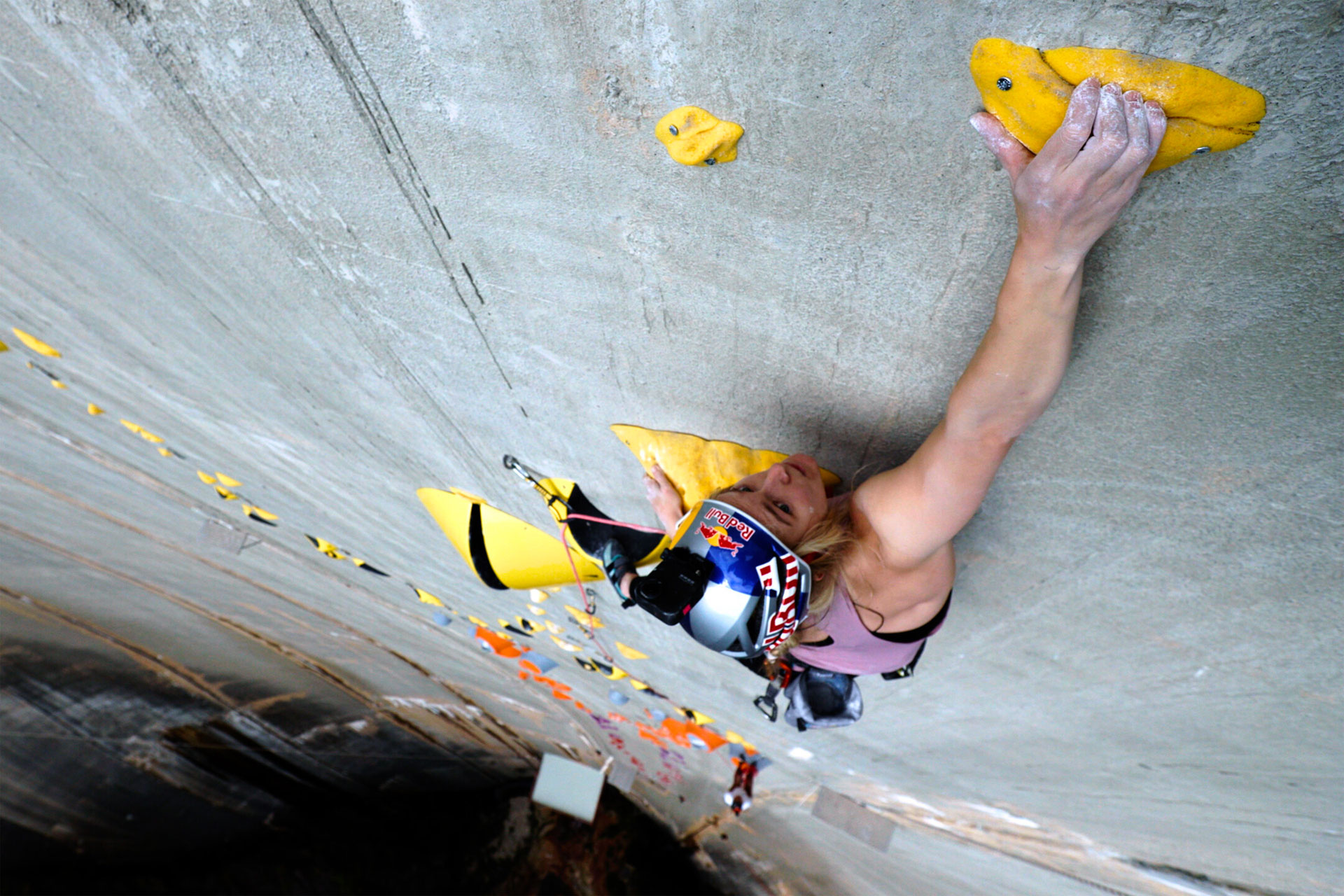
© Red Bull – Content Pool
I remember that you received some flack for climbing while pregnant, can you tell me a little more about that?
Climbing while pregnant was never something I consciously decided to do; I knew I wanted to climb for as long as I could during pregnancy, but I wasn’t trying to push it, I was just respecting my body – something I think everybody should be allowed to do. A lot of hate in the comments I think came down to people being confused by the potential risk… i.e. I was climbing things that they may have perceived as being difficult for me – but in actual fact I was typically doing easy routes. And then other people just thought I shouldn’t be doing it regardless.
Honestly for me, climbing on the wall felt way safer than walking down the street. On the wall, I’m in control! On the street, I don’t control what cars might do.
But yeah, it was a really strange scenario. The reason I kept sharing was because I just wanted to empower other pregnant people to make decisions with their bodies. Honestly some of the love and support I also got in the comments was, in a way, a little bit a part of the problem. Because a lot of the support was saying that because I was an Olympian, or a pro athlete, that people shouldn’t be judging what I was doing. But at that point being an athlete was irrelevant. If someone who’d been climbing for a few years wanted to keep climbing at a level that they thought was safe for them, then we shouldn’t be judging them – it’s their decision what to do with their body at that time.
But, yeah, what an interesting time in my life…!
Do you hope your daughter might be a climber as she grows up?
Frankie [my daughter] is always going to be surrounded by climbing. I’d love for her to fall in love with the sport as she gets older, but I’d be happy to be part of her journey pursuing whatever she becomes passionate about. And in all honesty, while she loves climbing, she also loves her bike, she loves surfing, loves the water. Right now she’s at a gymnastics class, and tomorrow she’ll be at a dance class. Who knows what she’ll end up doing.
But she is a really good climber already, and I guess right now, for her, climbing is the most normal thing ever – everyone around her does it. At some point she’ll maybe realise that’s not normal, and then I wonder what she’ll do.
Quick fire Questions
Best climb in the peaks?
Careless Torque. I haven’t actually done it yet. I need to go do that at some point.
Best climb in the UK?
I can’t answer that! There’s just too many. The UK is so rich with diversity in the rocks. If I had to choose, Malc’s Arete in Scotland – it has an insane backdrop, and it’s tall, very intimidating and the climb is good fun. But I still don’t want to choose.
Go to climbing guidebook?
My husband – I don’t like looking at climbing guide books, and he’s basically a walking-talking one.
Favourite climbing centre?
The Climbing Hangar in Sheffield, because it’s warm in the winter – the boulders are pretty good. And the gym space is decent. Plus, the café does really good cake.
Olympics predictions?
Difficult! You’d be a fool to not keep your eyes on Janya Garnbret, the Red Bull athlete, because statistically she’s the most impressive athlete of all time in any sport. And then you’ve got athletes like Oriane Bertone, who qualified at the European events – she’s a French athlete on a whole other level. British athletes, we’ve got Toby Roberts, who’s qualified already.
I think it’s going to be much more of a fight for the guys climbing.
In speed climbing… It really could be anyone’s game. Aleksandra Mirosław, the world record holder, has been very open that she’s going for the gold medal. She doesn’t slip – until it comes to qualifiers. So we do know that the pressure might get to her. I think it’s going to be pretty wild.
Liquid chalk or powder?
Powder. Ooh, that was a quick answer. I did a quick one.
Size up or down your climbing shoes?
I size down a little bit, but not a lot.
What are you working on right now?
Trying to be as fit and strong as I’ve ever been – so I can climb harder than I’ve ever climbed outdoors. Nothing super specific right now.
Life hack?
Adidas fleece terrex trousers. It’s cold. I am so happy. And maybe trying a hot Red Bull later today.
To find out more about Shauna Coxsey, head to her Red Bull athlete page.


